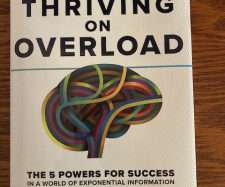Attention Spans Are Getting Shorter
Nick Leffler
APRIL 21, 2015
Attentions spans are shrinking, nobody can pay attention for more than a few seconds. Just to clear things up, an attention span is that thing that allows us to pay attention to something. You know, when something captures our attention because it’s so incredibly interesting and we can’t turn away.




















Let's personalize your content